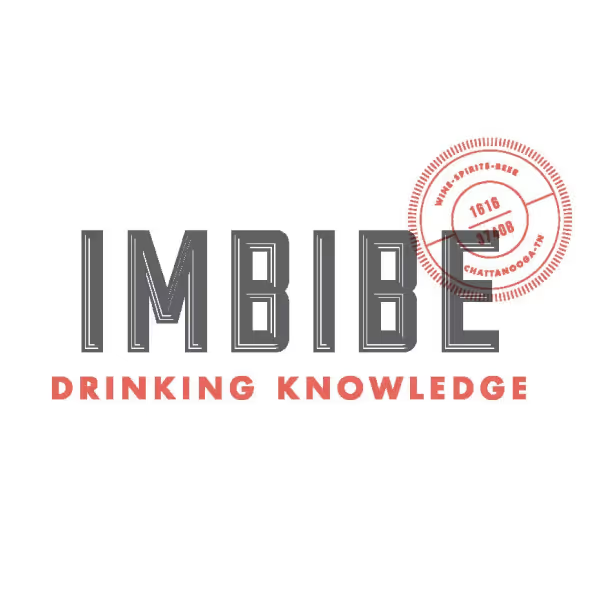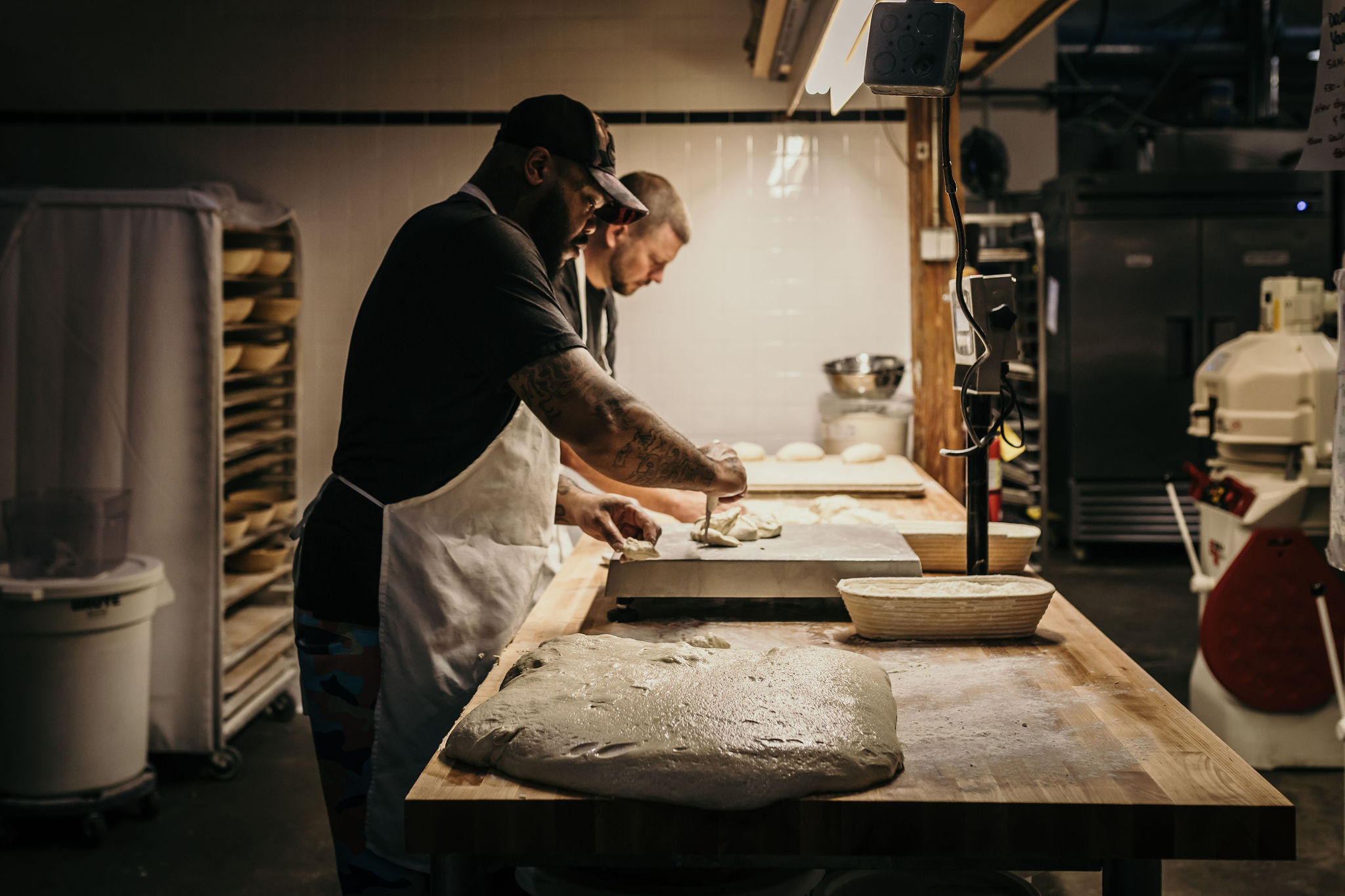
Les Mis, Niedlov's and the Better Leaven
The Broadway musical happens every day on Main Street.
Food as a verb thanks
for sponsoring this series

Last weekend, we went to see Les Miserables at the Memorial Auditorium. The off-off Broadway show was simply stunning. Tears in our eyes within minutes. (Oh, Fantine.)
My hot take: I believe the musical - especially its first act - stands among the finest artistic creations in human history.
A few songs into the show, I'm jostled by two revelations. One? There's a real life Les Mis happening in Chattanooga. And I know the characters.
Two? The show pricked in me a question that isn't the most comfortable to confront.
Do you know the Les Mis story?
In the late 1800s, in post-revolution France, a man does 19 years of hard time for stealing a loaf of bread to feed his starving family.
Our hearts ride shotgun with him the whole musical; he is Jean Valjean, our hero.
Released from prison, Jean Valjean is hard-hearted and defensive, begging for help, bread, something, anything.
A priest offers grace, which softens and redeems him.
Yet, on his trail, a bloodhound of a hard-ass sheriff who won't let up. Once a thief, always a thief.
Jean Valjean becomes a savior to many, yet, his transformation begins with the generous priest whose second-chance grace and compassion function as the headwaters for Jean Valjean's redeemed life.
It is a story of love.
It begins with bread.
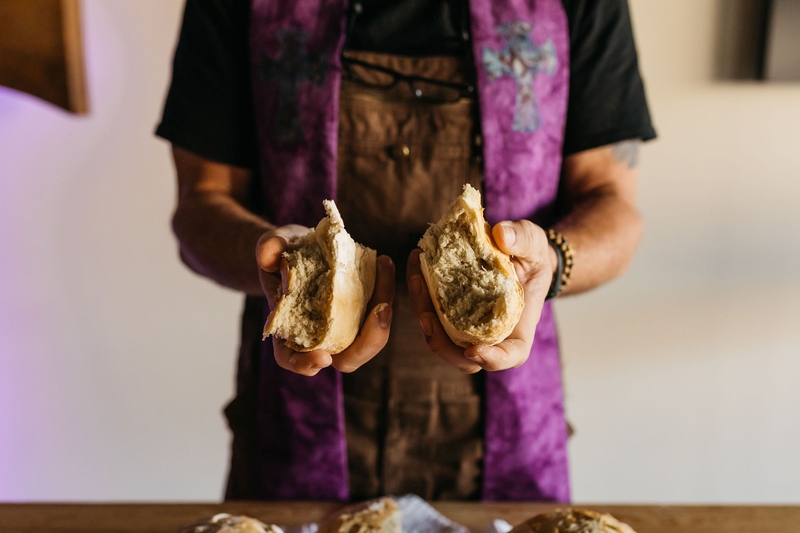
The very next day, I'm driving downtown, still humming the musical. I pulled off the exit ramp, just over the Olgiati bridge.
There's a homeless man with a ratty cardboard sign: Help. Hungry. Please. Veteran.
I look the other way. Keep driving.
Then, the musical still in my ears, I remember the priest.
Why does my heart soar in the presence of Jean Valjean's Broadway redemption, yet when an actual homeless man on the street asks for bread, I turn away?
In the comfy theater seats, I'm all in for second chances, yet when I see hungry folks in Chattanooga holding signs at red lights and exit ramps - Veteran/Please Help/Hungry - the ramparts rise over my heart and the dollars remain securely in my wallet.
What prevents me from being more like the Les Mis priest?
This question is answered neither quickly nor easily. I share it as both confession and wonder.
Maybe I need a real-life example of the priest.
That's when I thought of two Chattanoogans.
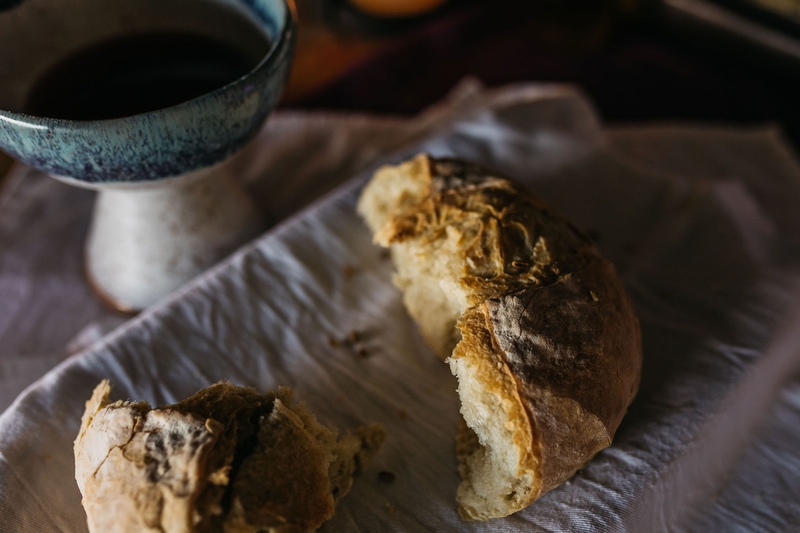
In 2016, Erik and Lauren Zilen bought Niedlov's Bakery & Cafe from the pioneering John Sweet, who opened it years prior, before Main Street was Main Street.
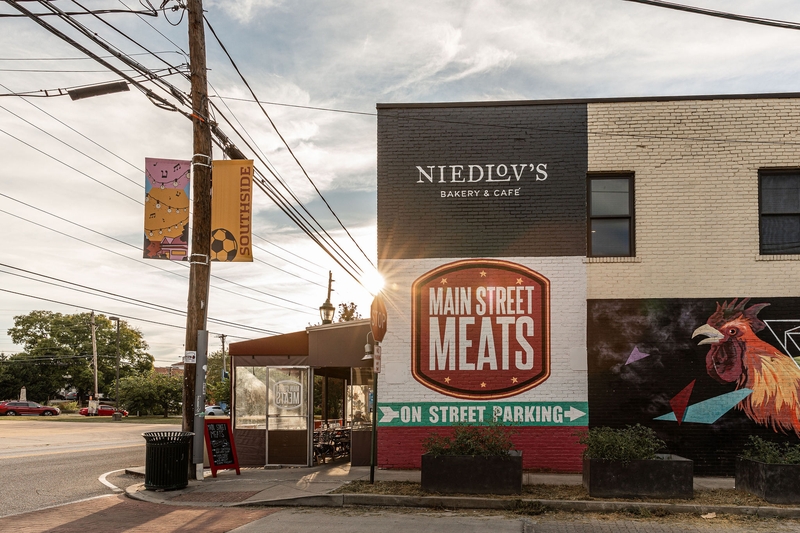
Over the last nine years, Lauren and Erik have expanded Niedlov's into the powerhouse bakery you know and love today. Lines out the door, Pizza Nights, the quest to make Rouge loaf, the city's first local loaf.
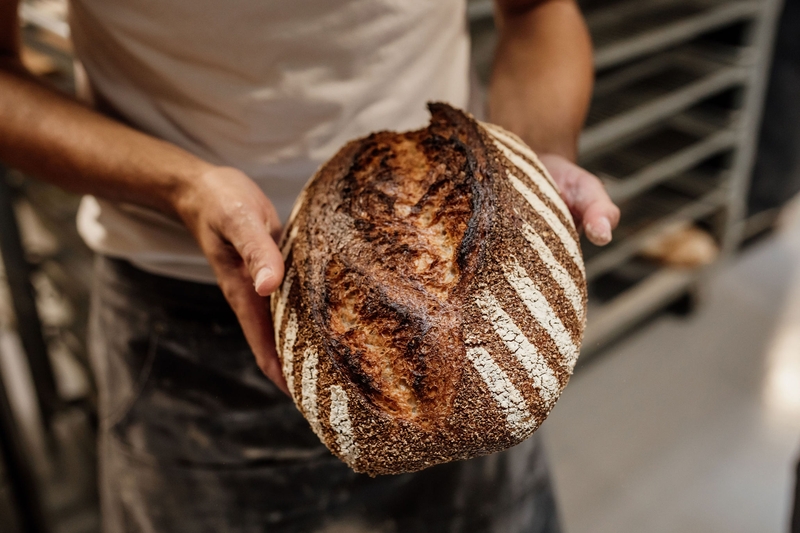
Yet, behind the bread?
Erik and Lauren have created a world of Les Mis generosity and second-chance love.
"Oh, absolutely," said Jami Gibson, Niedlov's manager. "Erik and Lauren are two of the most incredible people I have ever worked for or been friends with my entire life."
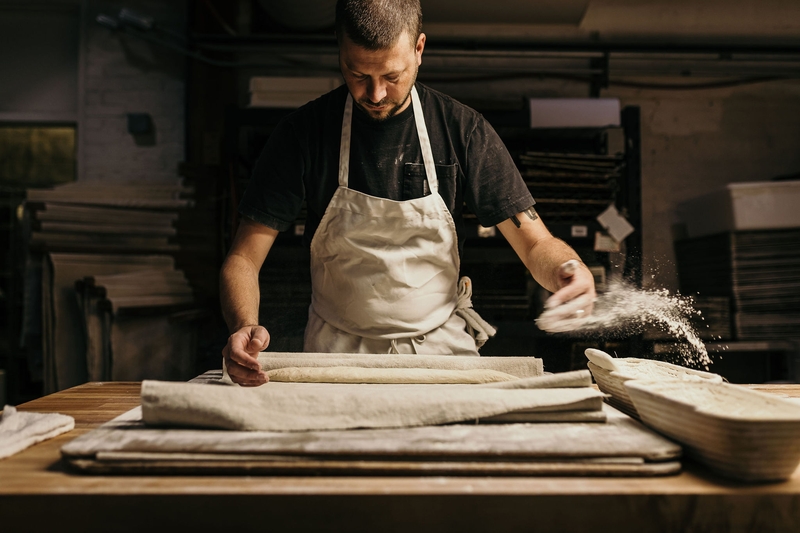
Jami been at Niedlov's for six years; she's seen Erik and Lauren work through thick and thin.
"Something really beautiful about the way they work? They know that we're human. There are bigger pictures and second chances," she said.
"It is about so much more than bread."
The Zilens live in and own a nearby building, which also allows them to offer affordable housing to families who may otherwise not find it.
They've also consistently hired dozens upon dozens of men and women other businesses would turn away. Refugees. Immigrants. Folks coming out of prison. Folks whose resumes aren't spotless.
They say: you have a place here. You have a safe home with us.
"They have offered finances, services, housing to anybody in the building who needs it," said Jami. "Their first response is always: 'what do you need? What can we do to help?'"
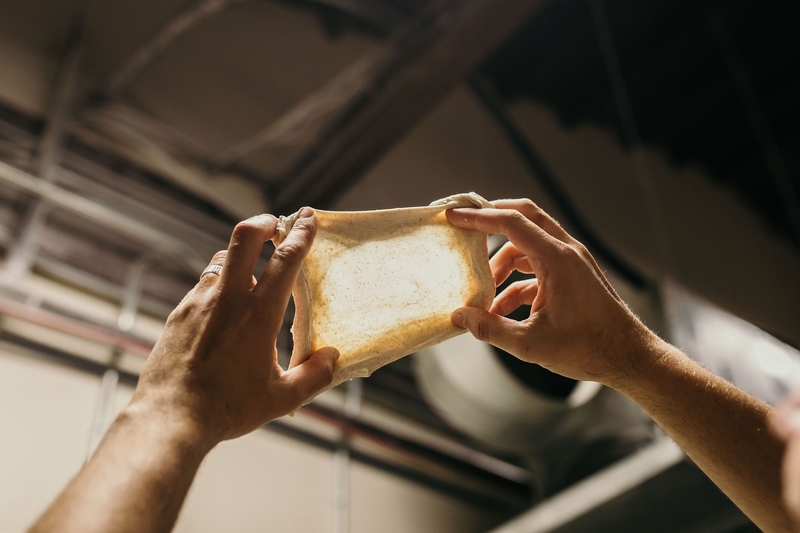
Nine years ago, Jemichael Wright was bouncing from job to job when Troy Rogers - who works for the city and also embodies that Les Mis priest - invited him to a job fair.
Niedlov's was there, hiring.
Erik offered him a job.
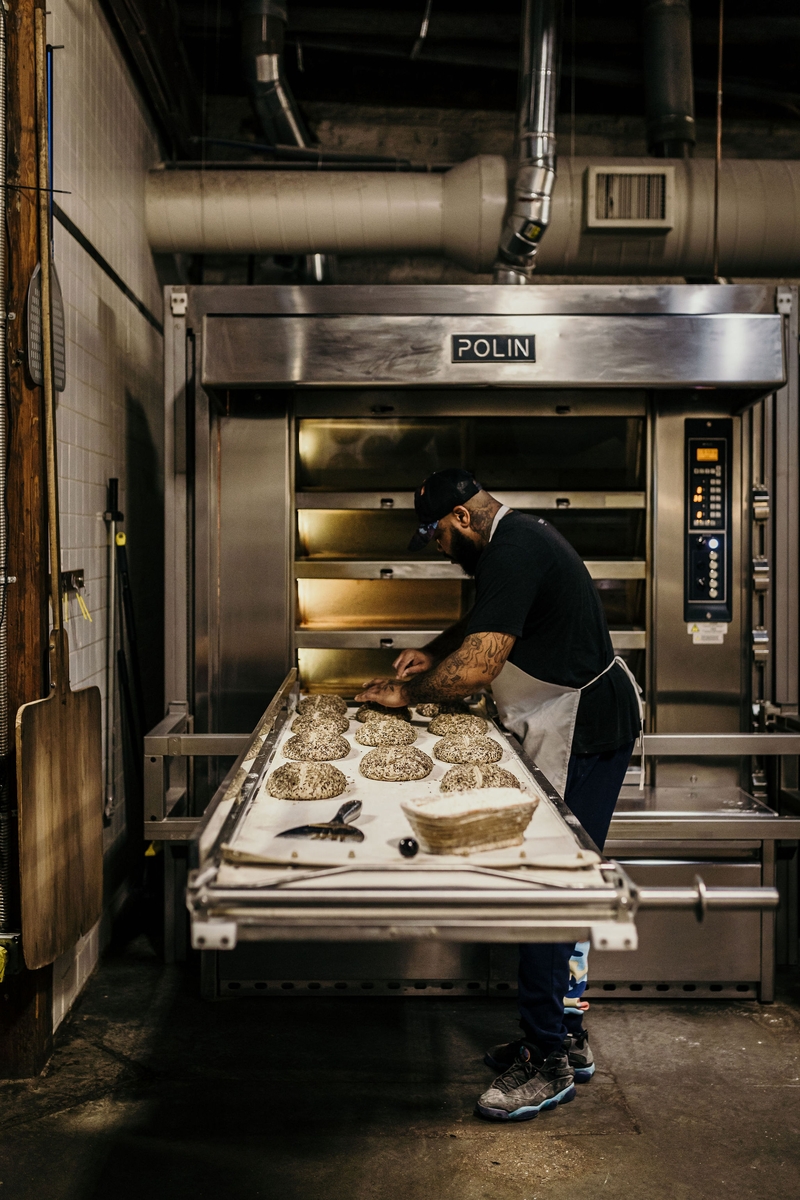
At first, Jemichael, 37, was "bagging and slicing," but Erik and Lauren saw something ... greater.
"They've been here for me ever since we met," Jemichael said. "They never treated me like no outsider. They treated me like they've been knowing me my whole life."
Erik began mentoring Jemichael, teaching him how to bake.
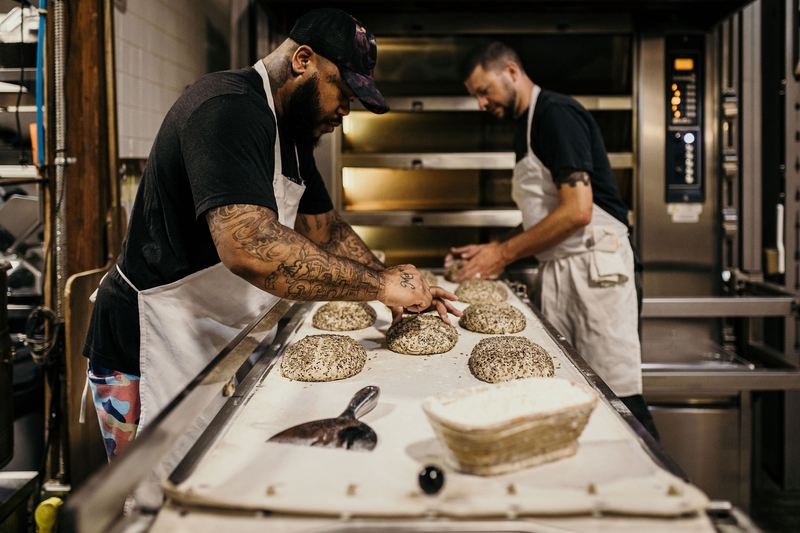
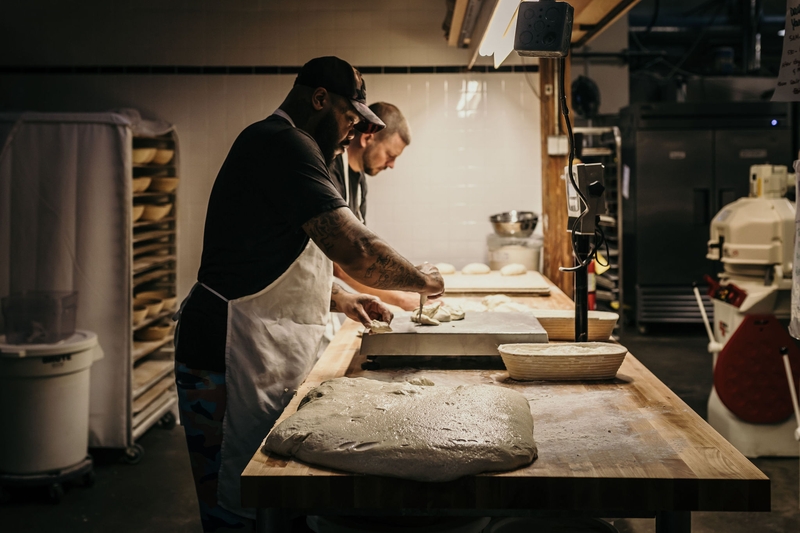
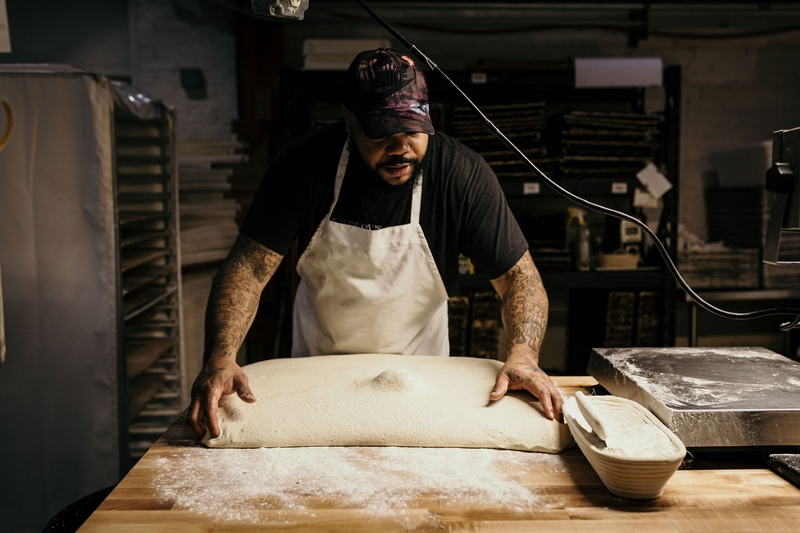

"He always treated me very well," Jemichael said. "Like, he brings tears to my eyes.
Today, Jemichael is the lead baker at Niedlov's.
"I don't know where I'd be at in life if it wasn't for Erik and Ms. Lauren," he said. "I plan on spending the rest of my life around them."
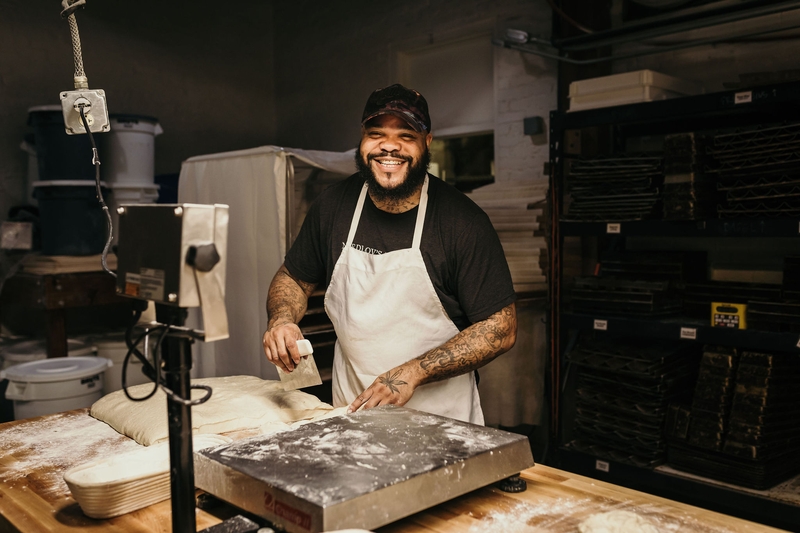
"That's what they do," said Shannon Stewart, catering manager. "They teach us who work for them to see things in people."
When she needed help, Erik and Lauren picked up her kids from school. Not long ago, Erik officiated the wedding of employees.
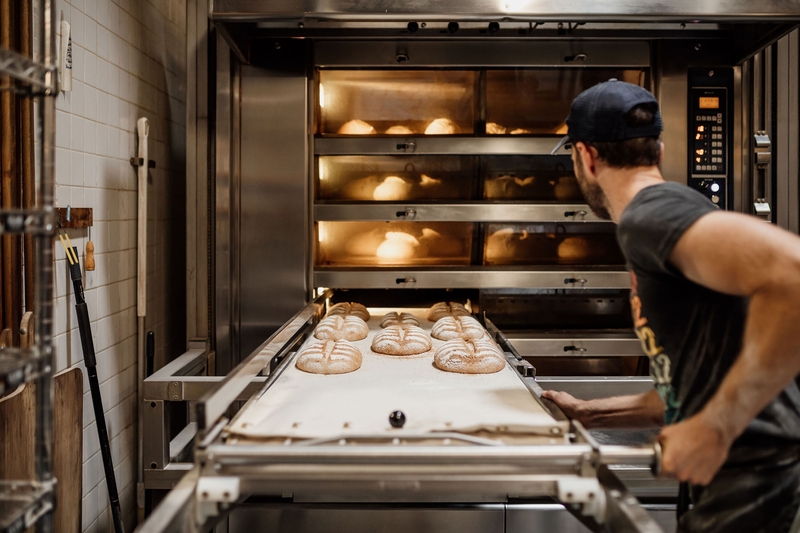
None of this is forced. "They don't sit us down in training and say: you have to open up your heart," said Shannon.
"They trust us."
Niedlov's front-of-house follows a Golden Rule.
"They give us the autonomy and say to us, 'we want people to be seen and feel comfortable. Do whatever is takes to make a guest feel that way'," said Shannon.
"That's one of the things I love about this place."

A kid in line standing wide-eyed at the sweets and pastries?
"Let the little kids come behind the counter and pick out a cookie for themselves," she said.
Someone orders a sourdough loaf but Niedlov's just sold the last one?
"Offer them another option and don't charge them for it," she said.
A customer comes in visibly upset, confiding quietly to Shannon over heartbreak: a miscarriage, a divorce, a lost pet.
"I can run back in and get a gift card and pass it to them and say: 'come have pizza on us on Friday night'," she said.
One employee relapsed, ending up in a tight spot. Erik and Lauren bailed him out, helping with attorney fees.
"Erik and Lauren saw the potential in him," Shannon said.
When another man spent a month in prison, they kept his job waiting. Folks pitched in to cover. Then, on the day he returned, everyone cheered: our team's back together. We missed you.
Then, the Les Mis anthem ripples out: those who receive are now able to give.
Erik and Lauren are no fools; theirs is not a push-over sentimentality. Their mature grace is the better leaven, as Erik and Lauren see the best in people, perhaps before they even see it in themselves.
Or ourselves.
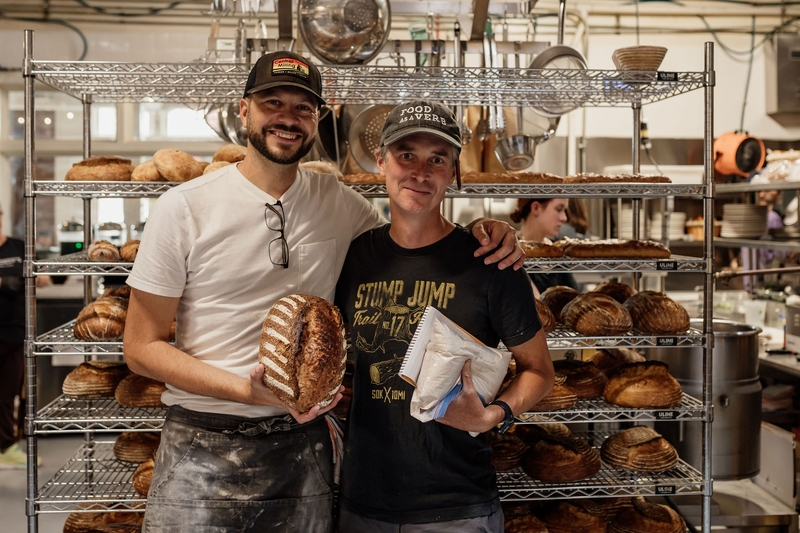
"To love another person is to see the face of God," Jean Valjean sings at the end of Les Mis.
This is not some Broadway platitude. It can be real-life truth, right here on Main Street. Jami pauses, the emotion rising, tears forming.
"When you get to exist in a space where people believe in you no matter where you came from," she said, "you start to believe it."
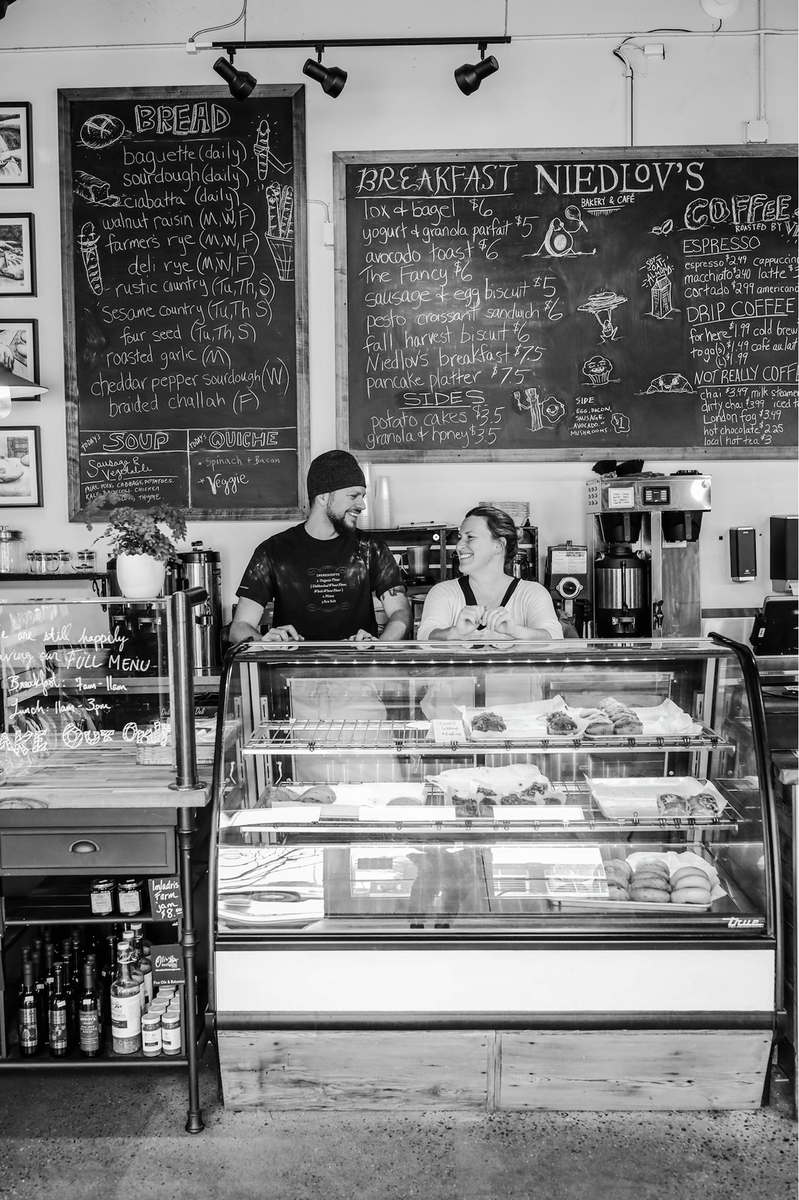
(Contributed photo from Erik and Lauren Zilen.)
Story ideas, questions, feedback? Interested in partnering with us? Email: david@foodasaverb.com
This story is 100% human generated; no AI chatbot was used in the creation of this content.
Last weekend, we went to see Les Miserables at the Memorial Auditorium. The off-off Broadway show was simply stunning. Tears in our eyes within minutes. (Oh, Fantine.)
My hot take: I believe the musical - especially its first act - stands among the finest artistic creations in human history.
A few songs into the show, I'm jostled by two revelations. One? There's a real life Les Mis happening in Chattanooga. And I know the characters.
Two? The show pricked in me a question that isn't the most comfortable to confront.
Do you know the Les Mis story?
In the late 1800s, in post-revolution France, a man does 19 years of hard time for stealing a loaf of bread to feed his starving family.
Our hearts ride shotgun with him the whole musical; he is Jean Valjean, our hero.
Released from prison, Jean Valjean is hard-hearted and defensive, begging for help, bread, something, anything.
A priest offers grace, which softens and redeems him.
Yet, on his trail, a bloodhound of a hard-ass sheriff who won't let up. Once a thief, always a thief.
Jean Valjean becomes a savior to many, yet, his transformation begins with the generous priest whose second-chance grace and compassion function as the headwaters for Jean Valjean's redeemed life.
It is a story of love.
It begins with bread.

The very next day, I'm driving downtown, still humming the musical. I pulled off the exit ramp, just over the Olgiati bridge.
There's a homeless man with a ratty cardboard sign: Help. Hungry. Please. Veteran.
I look the other way. Keep driving.
Then, the musical still in my ears, I remember the priest.
Why does my heart soar in the presence of Jean Valjean's Broadway redemption, yet when an actual homeless man on the street asks for bread, I turn away?
In the comfy theater seats, I'm all in for second chances, yet when I see hungry folks in Chattanooga holding signs at red lights and exit ramps - Veteran/Please Help/Hungry - the ramparts rise over my heart and the dollars remain securely in my wallet.
What prevents me from being more like the Les Mis priest?
This question is answered neither quickly nor easily. I share it as both confession and wonder.
Maybe I need a real-life example of the priest.
That's when I thought of two Chattanoogans.

In 2016, Erik and Lauren Zilen bought Niedlov's Bakery & Cafe from the pioneering John Sweet, who opened it years prior, before Main Street was Main Street.

Over the last nine years, Lauren and Erik have expanded Niedlov's into the powerhouse bakery you know and love today. Lines out the door, Pizza Nights, the quest to make Rouge loaf, the city's first local loaf.

Yet, behind the bread?
Erik and Lauren have created a world of Les Mis generosity and second-chance love.
"Oh, absolutely," said Jami Gibson, Niedlov's manager. "Erik and Lauren are two of the most incredible people I have ever worked for or been friends with my entire life."

Jami been at Niedlov's for six years; she's seen Erik and Lauren work through thick and thin.
"Something really beautiful about the way they work? They know that we're human. There are bigger pictures and second chances," she said.
"It is about so much more than bread."
The Zilens live in and own a nearby building, which also allows them to offer affordable housing to families who may otherwise not find it.
They've also consistently hired dozens upon dozens of men and women other businesses would turn away. Refugees. Immigrants. Folks coming out of prison. Folks whose resumes aren't spotless.
They say: you have a place here. You have a safe home with us.
"They have offered finances, services, housing to anybody in the building who needs it," said Jami. "Their first response is always: 'what do you need? What can we do to help?'"

Nine years ago, Jemichael Wright was bouncing from job to job when Troy Rogers - who works for the city and also embodies that Les Mis priest - invited him to a job fair.
Niedlov's was there, hiring.
Erik offered him a job.

At first, Jemichael, 37, was "bagging and slicing," but Erik and Lauren saw something ... greater.
"They've been here for me ever since we met," Jemichael said. "They never treated me like no outsider. They treated me like they've been knowing me my whole life."
Erik began mentoring Jemichael, teaching him how to bake.




"He always treated me very well," Jemichael said. "Like, he brings tears to my eyes.
Today, Jemichael is the lead baker at Niedlov's.
"I don't know where I'd be at in life if it wasn't for Erik and Ms. Lauren," he said. "I plan on spending the rest of my life around them."

"That's what they do," said Shannon Stewart, catering manager. "They teach us who work for them to see things in people."
When she needed help, Erik and Lauren picked up her kids from school. Not long ago, Erik officiated the wedding of employees.

None of this is forced. "They don't sit us down in training and say: you have to open up your heart," said Shannon.
"They trust us."
Niedlov's front-of-house follows a Golden Rule.
"They give us the autonomy and say to us, 'we want people to be seen and feel comfortable. Do whatever is takes to make a guest feel that way'," said Shannon.
"That's one of the things I love about this place."

A kid in line standing wide-eyed at the sweets and pastries?
"Let the little kids come behind the counter and pick out a cookie for themselves," she said.
Someone orders a sourdough loaf but Niedlov's just sold the last one?
"Offer them another option and don't charge them for it," she said.
A customer comes in visibly upset, confiding quietly to Shannon over heartbreak: a miscarriage, a divorce, a lost pet.
"I can run back in and get a gift card and pass it to them and say: 'come have pizza on us on Friday night'," she said.
One employee relapsed, ending up in a tight spot. Erik and Lauren bailed him out, helping with attorney fees.
"Erik and Lauren saw the potential in him," Shannon said.
When another man spent a month in prison, they kept his job waiting. Folks pitched in to cover. Then, on the day he returned, everyone cheered: our team's back together. We missed you.
Then, the Les Mis anthem ripples out: those who receive are now able to give.
Erik and Lauren are no fools; theirs is not a push-over sentimentality. Their mature grace is the better leaven, as Erik and Lauren see the best in people, perhaps before they even see it in themselves.
Or ourselves.

"To love another person is to see the face of God," Jean Valjean sings at the end of Les Mis.
This is not some Broadway platitude. It can be real-life truth, right here on Main Street. Jami pauses, the emotion rising, tears forming.
"When you get to exist in a space where people believe in you no matter where you came from," she said, "you start to believe it."

(Contributed photo from Erik and Lauren Zilen.)
Story ideas, questions, feedback? Interested in partnering with us? Email: david@foodasaverb.com
This story is 100% human generated; no AI chatbot was used in the creation of this content.










